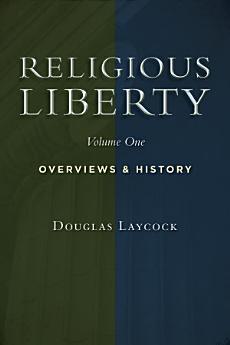Religious Liberty, Vol. 1: Overviews and History
Feb 2010 · Emory University Studies in Law and Religion (EUSLR) Book 1 · Wm. B. Eerdmans Publishing
Ebook
888
Pages
reportRatings and reviews aren’t verified Learn More
About this ebook
The Collected Works on Religious Liberty comprehensively collects the scholarship, advocacy, and explanatory writings of leading scholar and lawyer Douglas Laycock, illuminating every major religious liberty issue from both theoretical and practical perspectives. / This first volume gives the big picture of religious liberty in the United States. It fits a vast range of disparate disputes into a coherent pattern, from public school prayers to private school vouchers to regulation of churches and believers. Laycock clearly and carefully explains what the law is and argues for what the law should be. He also reviews the history of Western religious liberty from the American founding to Protestant-Catholic conflict in the nineteenth century, using this history to cast light on the meaning of our constitutional guarantees. / Collected Works on Religious Liberty is unique in the depth and range of its coverage. Laycock helpfully includes both scholarly articles and key legal documents, and unlike many legal scholars, explains them clearly and succinctly. All the while, he maintains a centrist perspective, presenting all sides — believers and nonbelievers alike — fairly.
About the author
Douglas Laycock is Robert E. Scott Distinguished Professor of Law and professor of religious studies at the University of Virginia. In addition to his work as a lawyer, he has written for the New York Times, the Washington Post, and numerous other publications.
Rate this ebook
Tell us what you think.
Reading information
Smartphones and tablets
Install the Google Play Books app for Android and iPad/iPhone. It syncs automatically with your account and allows you to read online or offline wherever you are.
Laptops and computers
You can listen to audiobooks purchased on Google Play using your computer's web browser.
eReaders and other devices
To read on e-ink devices like Kobo eReaders, you'll need to download a file and transfer it to your device. Follow the detailed Help Center instructions to transfer the files to supported eReaders.







